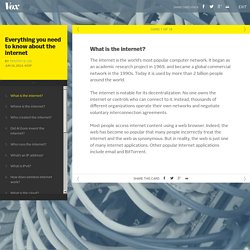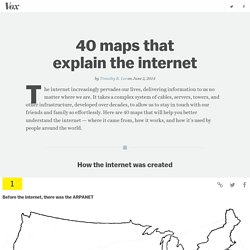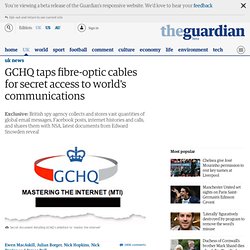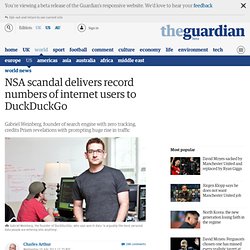

Les idées, Smartphone, Surveillance, Paranoïa, Logiciel libre, Geek, Google, Android. Toutes nos communications sont-elles aujourd’hui surveillées ?

Jérémie Zimmermann : Difficile de répondre à une telle question, car les programmes de surveillance sont bien sûr confidentiels. Les révélations d’Edward Snowden montrent pourtant trois choses. Primo, la surveillance est massive et généralisée. Vous devez avoir en tête le chiffre de 97 milliards d’éléments d’information collectés en mars 2013 dans le cadre de Prism, qui n’est qu’un des programmes de la NSA. Secundo, cette politique de surveillance est entourée d’une épaisse carapace de secret, puisque les responsables de la NSA sont allés jusqu’à mentir aux sénateurs américains sur la portée réelle de leurs actions. Cette surveillance est-elle légale ? Le cadre légal est fourni par le Foreign Intelligence and Surveillance Act (FISA) de 1978.
Et tout ceci se fait via nos smartphones ? Oui, mais permettez-moi de faire aussitôt une remarque sémantique : finissons-en avec cet affreux terme de novlangue, « smartphone ». Vraiment ? The Best Tools for Finding Information When Google Isn't Enough. David and Goliath: What do we do about surveillance? - tech - 30 March 2015. From spyware designed to catch students misbehaving to police tracking rioters by phone, we are spied on as never before, reveals a book by Bruce Schneier Book information Data and Goliath: The hidden battles to collect your data and control your world by Bruce Schneier Published by: W.

W. Norton Price: $27.95/£17.99 Police worldwide are trying to link specific phones to specific events (Image: Gleb Garanich/Reuters) Google and Wikipedia for University Students. How to Search the Web. What is the internet? - Everything you need to know about the internet. The cloud describes an approach to computing that has become popular in the last decade.

By storing files on servers and delivering software over the internet, cloud computing provides users with a simpler, more reliable computing experience. Cloud computing allows consumers and businesses to treat computing as a utility, leaving the technical details to technology companies. For example, in the 1990s, many people used Microsoft Office to edit documents and spreadsheets. They stored documents on their hard drives. And when a new version of Microsoft Office was released, customers had to purchase it and manually install it on their PCs. In contrast, Google Docs is a cloud office suite. There are many other examples. Cloud computing is having a big impact for businesses too.
40 maps that explain the internet. The internet increasingly pervades our lives, delivering information to us no matter where we are.

It takes a complex system of cables, servers, towers, and other infrastructure, developed over decades, to allow us to stay in touch with our friends and family so effortlessly. The Creepy, Long-Standing Practice of Undersea Cable Tapping - Olga Khazan. The newest NSA leaks reveal that governments are probing "the Internet's backbone.

" How does that work? Barta IV/Flickr In the early 1970's, the U.S. government learned that an undersea cable ran parallel to the Kuril Islands off the eastern coast of Russia, providing a vital communications link between two major Soviet naval bases. The problem? The Soviet Navy had completely blocked foreign ships from entering the region.
GCHQ taps fibre-optic cables for secret access to world's communications. Britain's spy agency GCHQ has secretly gained access to the network of cables which carry the world's phone calls and internet traffic and has started to process vast streams of sensitive personal information which it is sharing with its American partner, the National Security Agency (NSA).

The sheer scale of the agency's ambition is reflected in the titles of its two principal components: Mastering the Internet and Global Telecoms Exploitation, aimed at scooping up as much online and telephone traffic as possible. This is all being carried out without any form of public acknowledgement or debate. One key innovation has been GCHQ's ability to tap into and store huge volumes of data drawn from fibre-optic cables for up to 30 days so that it can be sifted and analysed.
That operation, codenamed Tempora, has been running for some 18 months. NSA scandal delivers record numbers of internet users to DuckDuckGo. Gabriel Weinberg noticed web traffic building on the night of Thursday 6 June – immediately after the revelations about the "Prism" programme.

Through the programme, the US's National Security Agency claimed to have "direct access" to the servers of companies including, crucially, the web's biggest search engines – Google, Microsoft and Yahoo. Within days of the story, while the big companies were still spitting tacks and tight-lipped disclaimers, the search engine Weinberg founded – which pledges not to track or store data about its users – was getting 50% more traffic than ever before. That has gone up and up as more revelations about NSA and GCHQ internet tapping have come in. "It happened with the release by the Guardian about Prism," says Weinberg, right, a 33-year-old living in Paoli, a suburb of Philadelphia on the US east coast.